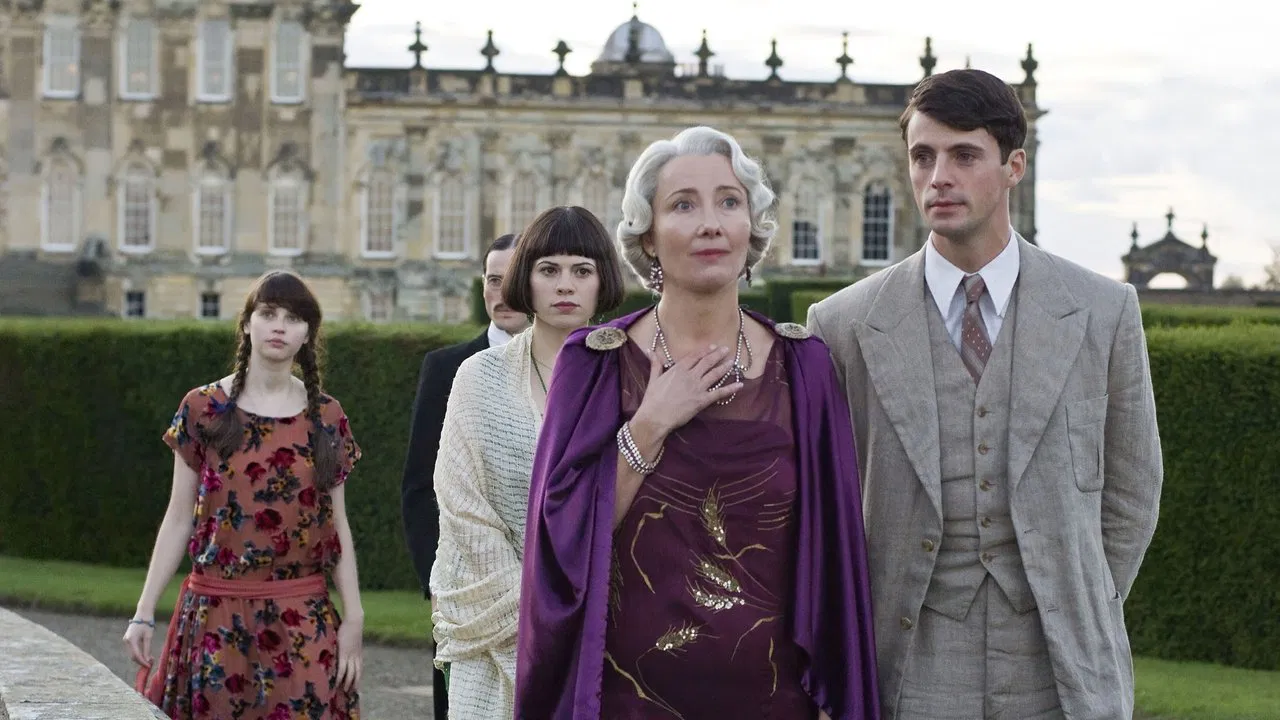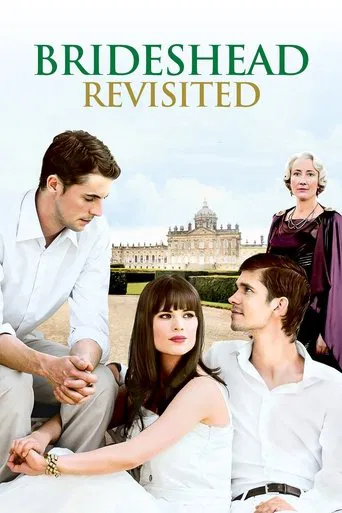

The Granada people got it right in 1979 when they set out to film "Brideshead Revisited." They realized that Evelyn Waugh's great novel could not be done justice in a single film of two or even three hours. It had to be made into an extended mini-series. Thus, the great 11-part TV series of 1981 - the first and only great film version of Waugh's novel. Yet, in 2008, BBC Films thought it was time for a remake. The result is this film adaptation. It lasts just over two hours. It skims over or skips characters. It changes the focus, and thus the story. It misses the essence of Waugh's story completely. So, it's more proper to call this a major revision - a revised story based on Waugh's novel. Even Emma Thompson as Lady Marchmain and Michael Gambon as Lord Marchmain can't lift this revised story to an acceptable imitation. Apparently, because the story is so profound, BBC films chose to promote this as a remake of the TV series from Waugh' great novel. That being the case, one is led naturally to comparison. Thus, this film fails. Still, for some fair acting by the cast, I give it five stars as though it were a different story entirely. After all, the cast can't be held accountable for the plot. Although Thompson's almost muted performance hints that she may realize she's in a far inferior work that has borrowed a great title.
... View MoreEven though the music, photography, set design and acting are very good, this movie was a disappointment for me. The plot has been skillfully manipulated. In this version, Julia's character has become a victim of a distorted protestant vision of catholic faith, and Lady Flyte is just a selfish, self-centered and fanatic mother. All the beauty, the hope and the humanity of the original is lost, leaving just tortured and melancholic characters who live a sort of impossible love. Of course there is no references to God's grace, personal conscience, repentance, charity, duty or the importance of the family. At the end, it remains only an obscure pseudo-reflection on guilt, that is supposed to be related with the scriptwriters' deformed idea of what the Roman Catholic religion is.
... View MoreIf you remember the acclaimed mini-series of Brideshead Revisited than you're already well acquainted with the Flyte family, it's head Michael Gambon, it's most Catholic mother Emma Thompson and their children. Unlike the mini-series the emphasis here is on outsider Charles Ryder and his connection to Julia as opposed to her brother Sebastian.Charles Ryder here is played by Michael Goode and during World War II of all the country estates in Great Britain he's sent to the estate of the Flyte family where during the 20s he spent considerable time. He was taken there by Ben Whishaw playing Sebastian who is at Oxford with him. Whishaw is the unofficial leader of a group of upper crust gay students and he'd love to bring Goode into the fold. Goode however keeps Whishaw at hand's length while he courts sister Hayley Atwell playing Julia.In the mini-series Ryder and Sebastian get involved, here they do not. But in any event Goode's non-Catholicism and his unwillingness to convert vetoes him in the eyes of Emma Thompson for entrance into the family. How it all works out for Charles Ryder is for you to see.Jeremy Irons and Anthony Andrews created the roles of Charles and Sebastian for the mini-series and next to them Goode and Whishaw are all right, but just don't measure up. Still those enjoyed the doings of the Flyte family back in the early 80s should like this. And fans of this generation ought to check out the mini-series.
... View MoreExquisite, simply and intrinsically beautiful. The portrayal is astounding and reflection is brilliant.Having read the novel before watching the movie I was petrified that it would ruin the beautiful novel, however it certainly does not.It outlines the books tragic story perfectly and with much skill. Theeffort gone into to making this divine movie must be mentioned and the exhilarating music, cleverly used to heighten every nerve in your body.I must say that having knowing the story beforehand made no difference. The inextricably serene yet heart-racing movie is a must.
... View More